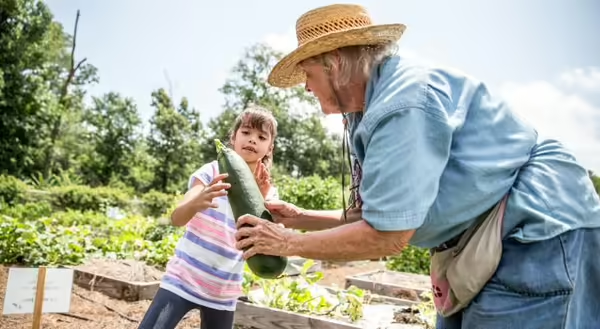
Take a moment and think about an adult who was influential in your life when you were young. What did they do that made a difference to you? Chances are, their actions constituted a developmental relationship, though they probably didn’t know this at the time.
Search Institute has laid out a Framework for Developmental Relationships that pinpoints five elements that make for the strongest developmental relationships:
- Expressing care
- Challenging growth
- Providing support
- Sharing power
- Expanding possibilities.
Each of these elements also has specific behaviors related to it.
According to research, the greater number of strong relationships a young person has, the more likely they are to respect the feelings of others, to be motivated in school, to try their best, to maintain friendships, and to take responsibility for their own actions, and more. In short, there is a correlation between Developmental Relationships and youth gaining skills they need to be successful in life. Dr. Peter Benson, a youth development researcher said, “Nothing—nothing—has more impact in the life of a child than positive relationships.”
For more than 100 years, University of Illinois Extension’s 4-H Youth Development program has provided young people with such positive relationships with caring adults. A recent local survey demonstrates young people feel the impact. During the summer of 2019, teenagers in the 4-H program serving Fulton, Mason, Peoria, and Tazewell counties were asked about their views of 4-H adults by rating the truth of a variety of statements that corresponded to several characteristics of developmental relationships. The results were inspiring.
In looking at how 4-H adults shared power, 96% of youth said that 4-H adults took them seriously, 97% indicated that they were treated fairly, and 94% felt respected.
When it comes to challenging growth, 96% of youth indicated that 4-H adults expected them (youth) to do something positive with their future, and 88% said that adults stretched them in new ways and helped them to see future possibilities.
Finally, teens also suggested that 4-H adults expressed care, with 91% saying that 4-H adults liked them, 93% felt adults paid attention to them, and 88% saw that 4-H adults invested time in them.
To learn more, visit Search Institute at www.search-institute.org/developmental-relationships/ or 4-H Thriving Model at helping-youth-thrive.extension.org/.
MEET THE AUTHOR
Emily Schoenfelder joined the Illinois 4-H team in 2017. Prior to this, she began her work in positive youth development with California 4-H and the YMCA. She specializes in STEM engagement, social-emotional development, and educator professional development. She received a master of science degree in recreation, park, and tourism administration from Western Illinois University. When she is not leading a training, writing curriculum, or developing new partnerships, you may find Emily sitting on the floor of her office, building marshmallow catapults out of popsicle sticks or designing mazes for robots for her next STEM program.
ABOUT EXTENSION SNAPSHOTS
Extension Snapshots are monthly impact reports that share the stories of our programs in Fulton, Mason, Peoria, and Tazewell counties. To have them delivered to you directly sign up using our E-blast registration. Snapshot Hard Copy